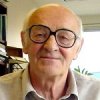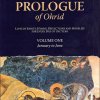A great man is one who collects knowledge the way a bee collects honey and uses it to help people overcome the difficulties they endure - hunger, ignorance and disease!
- Nikola Tesla
Remember, remember always, that all of us, and you and I especially, are descended from immigrants and revolutionists.
- Franklin Roosevelt
While their territory has been devastated and their homes despoiled, the spirit of the Serbian people has not been broken.
- Woodrow Wilson
Latest Articles
- Crafting Pišanice - Serbian Easter Eggs with Natural Dyes
- From Nicaea to Today: The Enduring Legacy of Synodality and Unity in the Church
- The Role of the Deacons in the Church
- The Circle of Serbian Sisters
- Vinka Ellesin
- Богородица као екстатично биће
- Bishop Maxim's Homily During the Assembly of Bishops XII Opening Liturgy
- Leon Joseph Lysaght Jr.
- Olga Gradojevich
People Directory
Mihajlo D. Mesarović
Mihajlo D. Mesarovic (Serbian: Mihajlo D. Mesarović, Serbian Cyrillic: Михајло Д. Месаровић; born July 2, 1928) is a Serbian scientist, who is a professor of Systems Engineering and Mathematics at Case Western Reserve University. Mesarovic has been a pioneer in the field of systems theory, he was UNESCO Scientific Advisor on Global change and also a member of the Club of Rome.
Mihajlo D. Mesarović was born on July 2nd, 1928 in Zrenjanin, Yugoslavia. He was awarded the B.S. from the University of Belgrade Faculty of Electrical Engineering in 1951. In 1955 he received a Ph.D. in Technical sciences from the Serbian Academy of Sciences and Arts.
. Read more ...Publishing
The Prologue of Ohrid
St Nikolai of Zica (Velimirovic) (1880-1956) has been called the "Serbian Chrysostom" for his theological depth and golden-tongued eloquence. Now for the first time, a complete and unabridged English translation of St. Nikolai's Prologue of Ohrid has been made available. St. Nikolai's Prologue has become a much-loved spiritual classic for Orthodox Christians worldwide. An inspirational source-book of the Orthodox Faith, it contains within its pages a summation of the Church's wisdom and Her experience of sanctity through the Grace of Jesus Christ. Lives of Saints, Hymns, Reflections and Homilies are presented for every day of the year. St. Nikolai's beautiful Hymns have never before appeared in English.
The text of this 1,450-page magnum opus of St. Nikolai has been translated from the Serbian and edited by clergy and monastics of the Serbian Orthodox Diocese of Western America.
In two volumes, hardbound, with full-color dust jackets.
New 2nd Edition 2008
Volume I: January to June, 650 pages (ISBN 0-9719505-0-4)
Volume II: July to December, 704 pages (ISBN 0-9719505-1-2)
Latest US News
- Волт Богданић: Американац српског порекла добитник три Пулицерове награде за истраживачко новинарство
- The American Srbobran - Building a Partnership with the Library of Congress and Institutions in Serbia
- „Американски Србобран“ унапређује сарадњу са Конгресном библиотеком у Вашингтону и институцијама у Србији
- Преминуо чувени амерички песник српског порекла Чарлс Симић
- Јован Дучић међу великанима у кливлендској башти
- Србија, Африка, Америка и Канада славе дан Теслиног рођења
- Документарац Немање Станковића приказан у Холивуду
- Tesla Rhapsody
- Saved by Beauty: Dostoevsky in New York
- Izložba likovnih radova o Dostojevskom
- Steve Popovich - the man who discovered Meat Loaf
- Odlazak čoveka koji je mnogo uradio za očuvanje sećanja na lik i delo Nikole Tesle
- Naš otac Balkanac za Ruse je smislio bijelu Coca-Colu
- Neverovatan poduhvat srpske pravoslavne zajednice u Americi
- Prva Srpkinja u finalu najveće evropske nagrade za pronalazače
Latest Serbia News
- На Станфорд листи 15 крагујевачких научника
- Naše postojanje skriva mračne i svetle strane, i veliko je umeće prepoznati ih i razlučiti
- Српска застава је најлепша на свету – на основу резултата анкете милион људи
- Недеља америчке културе
- Preminuo pisac Aleksandar Petrov
- Spomenik Branku Pešiću radiće srpski vajar iz Los Anđelesa
- Metropolitan Amfilohije buried in the Cathedral church in Podgorica
- Memorial prayer rite for Metropolitan Amfilohije in the Cetinje Monastery
- На данашњи дан рођен је Михајло Идворски Пупин
- Алекса је стигао до Принстона, али Математичкој гимназији се радо враћа
- Каубој православац и 40 Американаца посетили Косово
- Архив Војводине: Сведочанства времена у спомен на херојске претке
- Премијера „Теслиног народа“ на Коларцу
- Када се велики умови играју науком о подацима
- Američka vojska donirala je vrednu opremu klinici u Nišu



